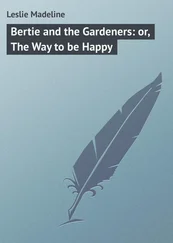Hattie watched out the window with Indigo so she could show her some of the places she used to ride her pony. Hattie was surprised to see a number of grand new dwellings rising out of the meadowlands above the beach. Years ago after her father concluded that the smoke and dirt of city air caused tuberculosis, he moved them permanently from the house on Fifth Avenue to Oyster Bay, where a great many of their acquaintances kept grand summer houses.
They were among only a handful of prominent families who lived year round at Oyster Bay. Her father relished the ample space on the old farmland, which allowed him to conduct many more of his odd agricultural experiments that aimed to teach the poor to grow food to supplement their diets. Her mother fretted about their isolation on Long Island, though it did not last long.
Hattie rode her first pony up and down the beach to watch as workmen dug foundations and great freight wagons pulled by giant shires delivered cut stone and new bricks to the construction sites. She was not allowed to go near or to speak to strangers, so she kept her pony at a distance from the workmen, but on summer evenings at sundown when the construction sites were empty, she rode her pony through the stacks of lumber and bricks, curious about the construction. She jumped her pony over the trenches dug for the garden maze as the new house was built near theirs, the house of Mr. and Mrs. Colin James, as fate decreed. Like Hattie’s father, Susan James sought the old farmland for its fertility, which was crucial in her architect’s plan for grand Renaissance gardens.
Indigo never imagined trees could grow as big and tall as the trees towering above the road on either side. She leaned out the window of the coach to marvel at their girth and to try to see the treetops; up ahead, at the end of the tree-lined drive, she saw a tall building of gray stone with a long porch all around, its stone pillars entwined with masses of pale pink flowers. As the coach slowed to a stop, Indigo was amazed to see the climbing rose swallowed up the entire front of the doorway; just as she was about to ask Hattie the name of the rose, the coach stopped and the big front doors of the house swung open, and out came two women followed by a man. Indigo took a step back behind Hattie, where she could not be seen.
They were all talking at once in loud, excited voices. She was relieved the strangers did not notice her as they crowded into the coolness of the entry hall. As she walked behind Edward and Hattie she couldn’t help but notice the highly polished wood floor; quickly she reached down to touch the dark wood, hard and smooth as glass.
The air inside the house was not unpleasant or stale, but absorbed a subtle odor Indigo soon learned to identify as old furniture and old books. She was glad her slippers were soft and went lightly across the floor so that no one seemed to notice her. The rooms were not much bigger than those of the California house, but the interior was very different; here the walls were paneled in dark wood. The great tall windows were dressed in pine green velvet draperies that swept down from the carved wood lintels to within an inch of the floor.
They moved through the entryway past the massive oak staircase to the front parlor, where there was much more light from tall stained-glass windows in the pattern of white lilies with green palm trees. Each window was flanked with polished brass pots of dwarf palm trees.
Although this house was larger than the Riverside house, the rooms here contained a good deal more furniture, with a great many little tables with glass or marble tops covered with tiny ceramic figures of animals. Along the walls, cabinets with glass doors displayed larger figurines of clear glass — a fierce glass bear occupied one shelf by itself. The end tables and cabinets were arranged close together with barely a space to walk between them. The matching brown velvet sofas and armchairs were centered at the far end of the parlor near the fireplace, and each sofa or chair was flanked with an end table or little chest of drawers displaying more glass figurines.
Indigo sat at one end of the sofa and looked all around while the others talked. She was most interested in a closer look at the crystal bear in the cabinet because his glittering eyes followed her across the room. She sat up straight and still on the sofa as she saw Hattie sit, but after a time, something on the sofa began to poke her right leg through her petticoats and stocking. Hattie noticed her discomfort and whispered in her ear that she might stretch her legs a bit. For an instant there was a pause; they all glanced at Indigo before resuming their conversation; the attention embarrassed her, and she did not move again until she was sure no one was looking. Inch by inch, she slid herself from the sofa to the floor so slowly Hattie did not notice her absence until the big crash. Indigo froze with both hands covering her face as the others all stood up in alarm at the fragments of broken glass scattered all across the floor.
“Oh my gracious!” Hattie’s mother exclaimed, and both Hattie and Edward’s sister, Susan, were quite startled. Edward called out sharply to Indigo, but Hattie was by her side with her arms around her, whispering into Indigo’s ear. Careful to avoid the maze of glass cabinets and tiny oval tables, she led Indigo by the hand to the door; both she and the child were exhausted from their journey.
As Hattie and Indigo started up the stairs, a voice called out warmly to Hattie; a large Negro woman dressed in white rushed over to hug Hattie.
“Oh I thought we’d lost you to that California for good,” Lucille said.
“After a week on the train, I feel as if I’m lost for good.”
“Who’s this tired girl?”
Indigo stepped behind Hattie so the housekeeper could not see her.
“This is Indigo and she and I both are exhausted.” Lucille looked at them both closely and nodded her head.
“I know what you need.”
Lucille went up the stairs ahead of them, turning up the gas lamps and calling out for Ceena and Grace, the maids. Indigo looked back down the stairs and saw two young black women come out a door by the stairs.
“Two hot baths!” Lucille called down to the maids as she led Hattie and Indigo down the hall.
Later trays of food were sent up to Hattie and Indigo while Edward dined with the others. All questions concerned the Indian child, so Edward described Hattie’s immediate interest in the Indian child lost from the government boarding school nearby. His brother-in-law, Colin James, seemed unconcerned about Indians or children or any worldly care, for that matter, as he downed his fifth glass of wine, but Edward noticed a frown cross his sister’s brow for an instant at his mention of the Indian child. She wanted to know why they brought the Indian child. Edward smiled faintly. Hattie was attached to the child, and he found her quite interesting himself. She was generally well behaved and kept Hattie company when Edward was away.
“She’s to be trained as a lady’s maid,” Edward said as he held his plate over the platter. “The Indian schools teach them all sorts of skills and trades.” He paused to cut a bite of meat as the others waited to hear more; actually he and Hattie had not discussed plans for the child beyond the summer.
Later, the men strolled outdoors to see Mr. Abbott’s latest projects to aid the poor: rammed-earth bricks and fishponds. Susan James and Mrs. Abbott went upstairs to look in on Hattie and the child.
The room was just as it had been the day of Hattie’s wedding, some eight months ago, as if perhaps her mother still did not quite believe she had found a husband after all. It was not like Mother to miss an opportunity to redecorate a room, but she gathered from the conversation in the parlor her mother now devoted a great deal of time to the church; she and Susan James organized charity events to raise money for the Catholic bishop’s aid society.
Читать дальше












